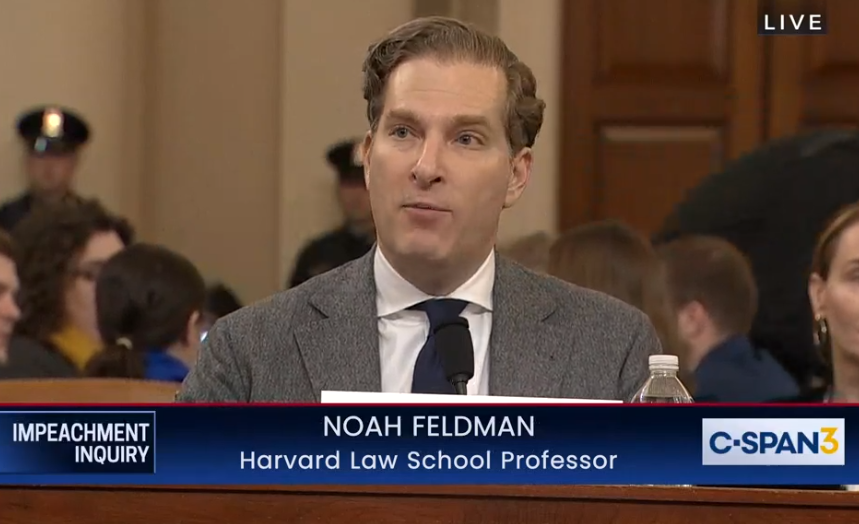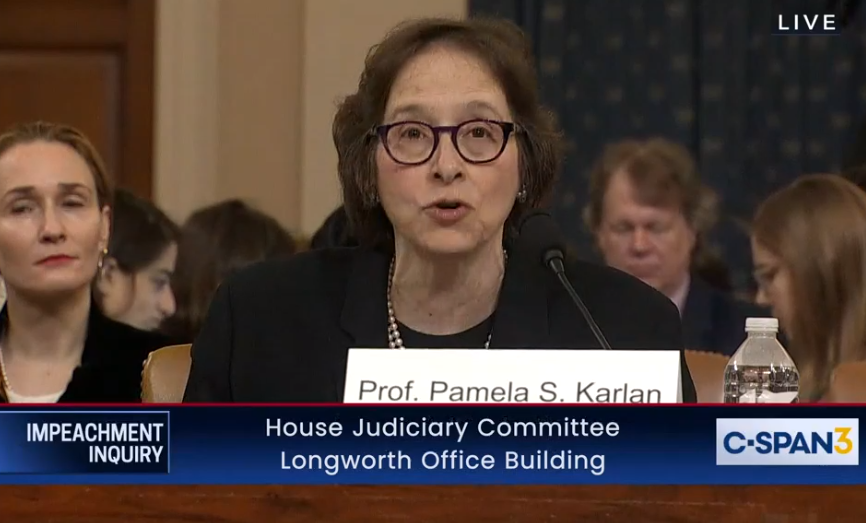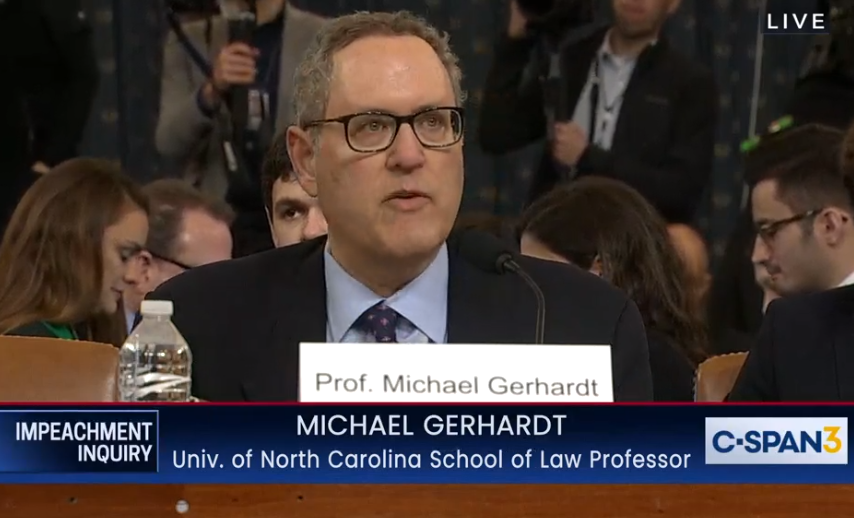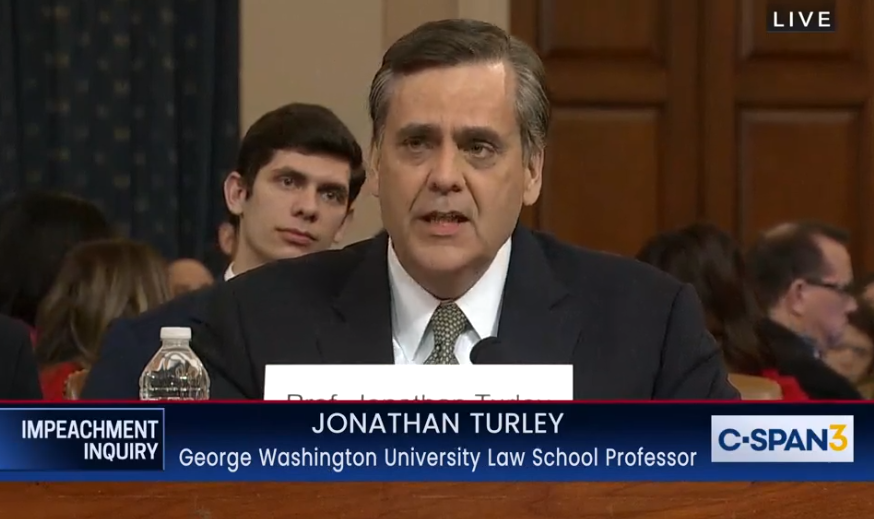Judiciary Hearing: Professors Say Trump Committed Impeachable Offenses
The smarter way to stay on top of the multichannel video marketplace. Sign up below.
You are now subscribed
Your newsletter sign-up was successful
Constitutional law experts told a House Judiciary Committee hearing panel Wednesday (Dec. 4) that President Trump had committed high crimes and misdemeanors, which are impeachable offenses, with one going so far as to say the President had attacked the constitutional protects against turning the country into a monarchy.
Only one of the four witnesses opposed impeachment.
All the witnesses said they were relying on the House investigation's evidentiary record in drawing those conclusions at the committee's first impeachment hearing, with only one concluding it did not rise to the level of impeachment.
Committee Republicans offered up procedural motions in an effort to delay the hearing, but chairman Jerrold Nadler (D-N.Y.) kept the testimony moving by either shutting them down or speeding roll call votes.

Harvard Law professor Noah Feldman said the President's conduct in seeking the aid of a foreign power to investigate a political rival clearly constituted a high crime and misdemeanor.
He said abuse of office is clear when a President uses the power of his office not to serve the American public but for his own partisan political interest.
Pamela Karlan of the Stanford Law School, agreed, saying that the President had committed an abuse of power that struck at the heart of the nation to which he swore allegiance.
The smarter way to stay on top of the multichannel video marketplace. Sign up below.
Karlan said the President had "doubled down" on violating his oath to protect and defend the Constitution.

Three of the professors sounded more like prosecuting attorneys offering up summations, particularly Karlan, who began by taking issue with Republican suggestions she did not care about the facts of this particular case--she said she had read all the testimony--then delivered an impassioned condemnation of the President's conduct.
Michael Gerhardt of the University of North Carolina Law School, who referred to the other two witnesses as friends, agreed that the record showed the President had committed impeachable offenses, and said there were actually four of them--bribery, abuse of power, obstruction of justice and obstructing Congress.
Gerhardt said the President had misused his office for personal gain, and went so far as to say he was convinced the President had attacked each of the safeguards against turning American democracy into a monarchy.

He said if Congress fails to impeach this President, impeachment has no meaning.
Jonathan Turley, of George Washington, pointed out he had testified in the impeachment hearing of Bill Clinton two decades ago.
He said he was not a supporter of Trump, and voted against him, but that that had no bearing on his testimony, which appeared to be the case since, as the lone Republican witness, he was the lone voice against impeachment.
Turley said he was concerned about lowering the standards for impeachment, rushing to judgment, or creating a "trapdoor" crime to justify impeachment, as he said happened with Andrew Johnson.

He said there is no compelling evidence that the President committed a crime. "I get it, you're mad," he said, as are my wife, and my kids and even my dog, a golden-doodle, which he said generally don't get mad.
But Turley said this impeachment was wrong not because the President was right, or because it was an election year. He said it was wrong to impeach a President on this incomplete record and based more on rage than reason.
Impeachment is not "some impulse-buy Nike sneaker," he said.
Contributing editor John Eggerton has been an editor and/or writer on media regulation, legislation and policy for over four decades, including covering the FCC, FTC, Congress, the major media trade associations, and the federal courts. In addition to Multichannel News and Broadcasting + Cable, his work has appeared in Radio World, TV Technology, TV Fax, This Week in Consumer Electronics, Variety and the Encyclopedia Britannica.

